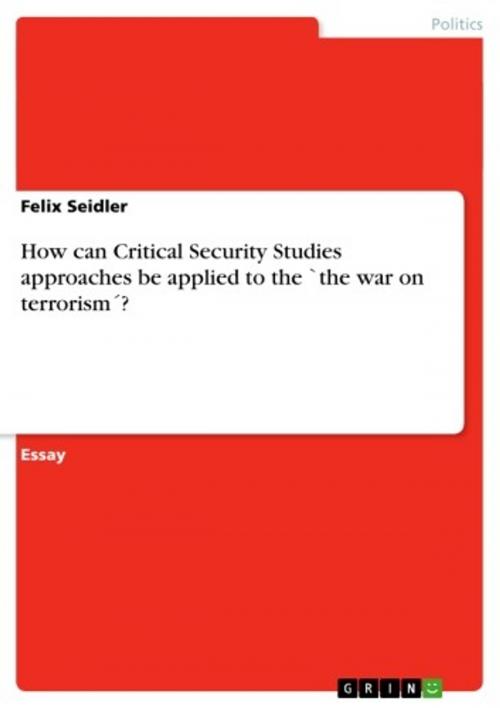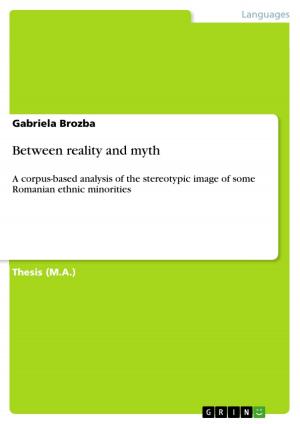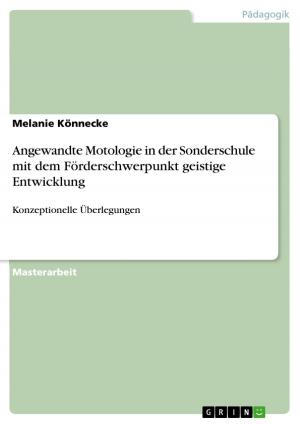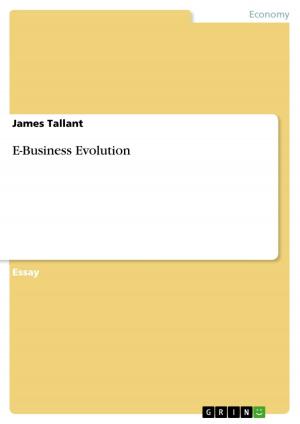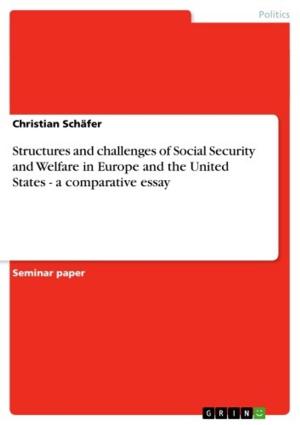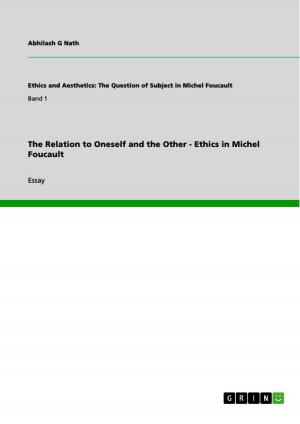How can Critical Security Studies approaches be applied to the `the war on terrorism´?
Nonfiction, Social & Cultural Studies, Political Science, Politics, History & Theory| Author: | Felix Seidler | ISBN: | 9783640464371 |
| Publisher: | GRIN Publishing | Publication: | November 4, 2009 |
| Imprint: | GRIN Publishing | Language: | English |
| Author: | Felix Seidler |
| ISBN: | 9783640464371 |
| Publisher: | GRIN Publishing |
| Publication: | November 4, 2009 |
| Imprint: | GRIN Publishing |
| Language: | English |
Essay from the year 2009 in the subject Politics - Political Theory and the History of Ideas Journal, grade: 73 von 100 Punkten, The University of Sydney (Center for International Security Studies), course: New Security Challenges, language: English, abstract: This essay deals about the approaches of Critical Security Studies (CSS) to the `the War on Terrorism´ (WoT). To understand the approaches of CSS it is important to know, that this view has its origin in the critique of the traditional approaches realism and liberalism. A consequence of this is CSS do not see the state as most important referent object. In contrast to realism and liberalism it is the approach of CSS to look for alternative referent objects beside the state. But CSS are not just one approach. It is divided into different schools or drifts. This essay wants to research, how these schools and drifts analyse the WoT. Central to this are the paragraphs 2 and 3, which deal about ´Welsh School´ and `Copenhagen School´. These two are most important drifts inside CSS. The other drifts will be discussed in paragraph 4. Afterwards in paragraph 5 it will be pointed out where the failures and critic points of CSS in general as well as in its drifts are. Even if the impacts in its drifts differ, CSS is based on the Critical Theory/ `Frankfurt School (Habermas) and on Poststructualism (Foucault). This means on the one hand that CSS does not take the state as the most important referent object, but thinks more broadly about the reasons for (in-)security. And on the other hand CSS researchers according to Critical Theory claim reality to be socially constructed and want to look behind the empiricist world. In context of WoT we will see later that this means a critic on official or governmental standpoints. The debates between CSS and governmental or traditional approaches start at the definition of terrorism. Definitions of terrorism are broadly discussed in practical politics and in International Relations (IR). Because this is such a high-class topic, an own definition will be used in this essay. So `terrorism´ shall be defined as `an act of political motivated non-state violence for achieving a declared aim´. Of course this definition will be discussed in contrast to the definition CSS researches made. From the debates in the public and the media one has of course a general understanding of WoT. It can be stated here that WoT is mostly understood as fight of the `Western´ world against the global militant Islamist movement known as Al-Qaeda. This situation will be important for the further analysis but also a more abstract definition of WoT is necessary here.
Essay from the year 2009 in the subject Politics - Political Theory and the History of Ideas Journal, grade: 73 von 100 Punkten, The University of Sydney (Center for International Security Studies), course: New Security Challenges, language: English, abstract: This essay deals about the approaches of Critical Security Studies (CSS) to the `the War on Terrorism´ (WoT). To understand the approaches of CSS it is important to know, that this view has its origin in the critique of the traditional approaches realism and liberalism. A consequence of this is CSS do not see the state as most important referent object. In contrast to realism and liberalism it is the approach of CSS to look for alternative referent objects beside the state. But CSS are not just one approach. It is divided into different schools or drifts. This essay wants to research, how these schools and drifts analyse the WoT. Central to this are the paragraphs 2 and 3, which deal about ´Welsh School´ and `Copenhagen School´. These two are most important drifts inside CSS. The other drifts will be discussed in paragraph 4. Afterwards in paragraph 5 it will be pointed out where the failures and critic points of CSS in general as well as in its drifts are. Even if the impacts in its drifts differ, CSS is based on the Critical Theory/ `Frankfurt School (Habermas) and on Poststructualism (Foucault). This means on the one hand that CSS does not take the state as the most important referent object, but thinks more broadly about the reasons for (in-)security. And on the other hand CSS researchers according to Critical Theory claim reality to be socially constructed and want to look behind the empiricist world. In context of WoT we will see later that this means a critic on official or governmental standpoints. The debates between CSS and governmental or traditional approaches start at the definition of terrorism. Definitions of terrorism are broadly discussed in practical politics and in International Relations (IR). Because this is such a high-class topic, an own definition will be used in this essay. So `terrorism´ shall be defined as `an act of political motivated non-state violence for achieving a declared aim´. Of course this definition will be discussed in contrast to the definition CSS researches made. From the debates in the public and the media one has of course a general understanding of WoT. It can be stated here that WoT is mostly understood as fight of the `Western´ world against the global militant Islamist movement known as Al-Qaeda. This situation will be important for the further analysis but also a more abstract definition of WoT is necessary here.
